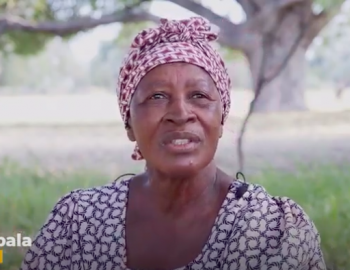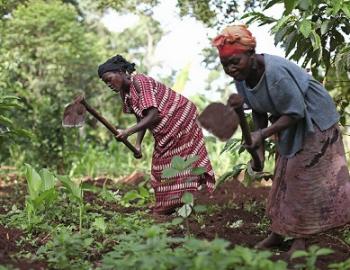Rural Africa at the crossroads: livelihoods, practices and policies
Rural Africa at the crossroads: livelihoods, practices and policies
The last two decades of the 20th century have been a period of change for sub-Saharan African economies. Structural Adjustment Programmes have triggered a huge, unplanned income diversification response in African rural areas making rural populations become more occupationally flexible, spatially mobile and increasingly dependent on non-agricultural income-generating activities. This paper synthesises the findings and main policy implications of new empirical studies on rural livelihoods emanating from the De-Agrarianisation and Rural Employment (DARE) research programme carried out in Nigeria, Ethiopia, Tanzania, Congo-Brazzaville, Malawi, Zimbabwe and South Africa. The studies provide comparative data on changing economic and social patterns in a wide variety of rural settlements. The following issues come to light in the studies:
- peasants’ deteriorating commercial agriculture
- rising cash needs
- decreasing rural isolation
- increasing income diversification
- proliferation of income earners within the rural household
- peasants coping with uncertainty through:
- securing economic survival via market experimentation vs subsistence fallback
- marshalling resources and social networks: household solidarity versus individual autonomy
- an unacknowledged identity crisis: agrarian conservatism versus skeptic otherness
- linkages between non-agricultural activities and agriculture.
The paper derives the following findings from the studies:
- the studies portray a balancing act of people trying to cobble together their livelihoods by balancing between farm and non-farm, family and individual, and rural and urban contrasts
- as a result of structural adjustment performances, diversification out of agriculture is increasing among African rural populations
- diversification is high and includes youth migration and the sale of home-making skills among women
- diversification offers many opportunities but also threatens traditional agrarian and family values as manifested by the emerging signs of social dysfunction associated with urban areas surfacing in villages.
The paper makes the following policy recommendations in support of diversification efforts.
- Promote the development of human capital, equipping people, especially the youth, with the skills to work in new environments through resuscitating primary education, setting up rural extra-curricular clubs and learning programmes.
- National, regional and local governments should undertake participatory assessments of spatially-based comparative advantage and provide services for this to be exploited.
- Rural land tenure policy is a vital issue that has to be tackled to facilitate appropriate, low-cost ways of enhancing agricultural productivity.
The paper concludes that depeasantisation will continue and should be harnessed to good effect with positive, future-oriented strategies that lay the foundation for occupational diversification and specialisation.



